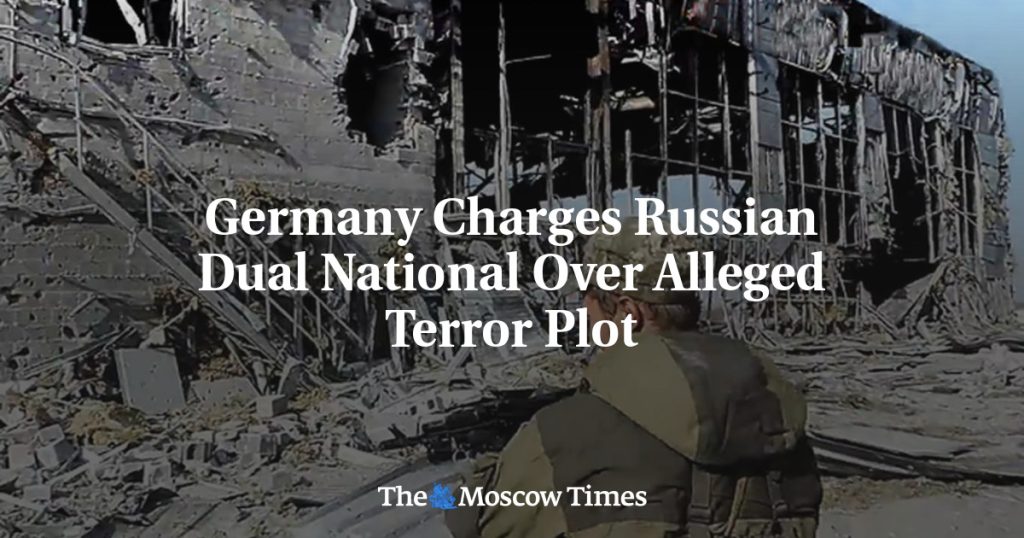German prosecutors have charged a German-Russian man, identified only as Dieter S., with terror offenses and threatening state security. He was arrested in April for suspicion of planning attacks in Germany to undermine support for Ukraine, with targets including U.S. military bases. Dieter S. was charged with the preparation of a serious act of violence threatening state security, but details of the alleged plot were not disclosed. He also faced charges for fighting in an armed unit of the self-proclaimed Donetsk People’s Republic in eastern Ukraine between 2014 and 2016, where the militia used violence against the civilian population.
According to prosecutors, the militia Dieter S. belonged to repeatedly used violence against civilians during his time fighting in eastern Ukraine. At the time of his arrest, authorities revealed that he was in contact with someone connected to a Russian intelligence agency and had been exchanging information with them since October 2023 about possible sabotage operations in Germany. The federal prosecutor’s office stated that a separate investigation into possible charges for his involvement in intelligence activities should be concluded soon. The charges against Dieter S. highlight the complexities of the conflict in eastern Ukraine and the involvement of foreign fighters in the region.
The arrest and subsequent charging of Dieter S. shed light on the ongoing tensions between Russia and Ukraine, as well as the broader geopolitical implications of the conflict in eastern Ukraine. The prosecutor’s office did not provide further information on the exact nature of the alleged plot that Dieter S. was involved in, but the charges of terror offenses and threatening state security indicate the seriousness of the accusations against him. The case also highlights the challenges faced by law enforcement in identifying and apprehending individuals involved in extremist activities with links to international networks.
The involvement of a German-Russian man in a pro-Moscow militia in eastern Ukraine raises questions about the motivations and connections of foreign fighters in the region. The prosecutor’s office’s mention of Dieter S.’s contact with someone connected to a Russian intelligence agency underscores the complex web of relationships that can exist between individuals, armed groups, and state actors in conflict zones. The charges against Dieter S. for fighting in eastern Ukraine and planning attacks in Germany highlight the multifaceted nature of the conflict and the potential threat posed by individuals with extremist ideologies.
The charges against Dieter S. represent a significant development in the case and underscore the importance of international cooperation in combating terrorism and extremist activities. The ongoing investigation into his involvement in intelligence activities indicates the need for continued vigilance in monitoring and addressing threats from foreign fighters and their supporters. The case also serves as a reminder of the broader implications of conflicts such as the one in eastern Ukraine, which can have far-reaching consequences for national and international security. As the legal proceedings against Dieter S. progress, further details may emerge about the extent of his involvement in extremist activities and his connections to foreign actors.
Overall, the case of Dieter S. highlights the complexities of modern conflicts, the challenges faced by law enforcement in addressing terrorism, and the importance of international cooperation in combating threats to state security. The charges against him for involvement in the conflict in eastern Ukraine and planning attacks in Germany underscore the need for ongoing efforts to monitor and prevent extremist activities. As the investigation into his case continues, more information may come to light about the extent of his connections and the potential threats he posed. The case serves as a reminder of the ongoing risks posed by foreign fighters and the need for continued vigilance in addressing extremist ideologies that can fuel violence and destabilize regions.














